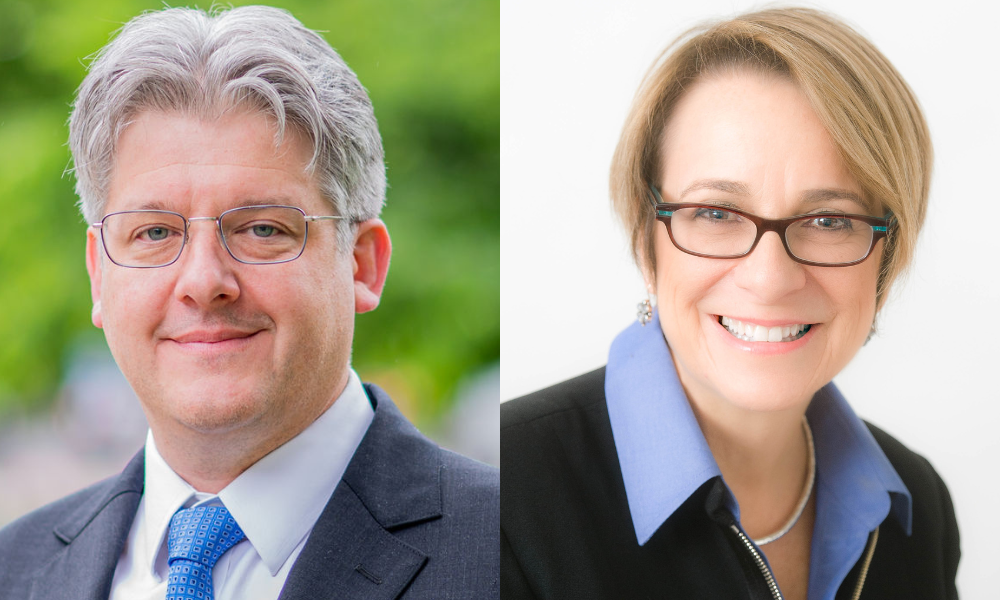

Workers on strike at Boeing really want a traditional pension plan reinstated – so much so that on Wednesday they rejected an offer from the company to contribute up to 12 percent a year to their 401(k) plans.
That proposition also shows how far big companies are willing to go to avoid reinstating or starting new pensions. In the aircraft company’s case, it offered a 4 percent automatic contribution as well as a company match of up to 8 percent on worker’s contributions. Boeing also dangled a one-time $5,000 contribution to the 401(k)s and said it would allow workers to direct their guaranteed bonuses of 4 percent a year into the 401(k). Including workers’ own contributions, that adds up to 24 percent going into 401(k)s annually, noting including the one-time payment. That was also in addition to a 35 percent pay increase the company offered.
Read more: Comparing the 401(k) vs. pension plan
Union machinists rejected it, with 64 percent voting against, thus continuing the strike that started more than 40 days ago at the ailing company, which this week reported a $6.1 billion loss.
“There is a real desire to return to pensions, and a lot of times management is willing to do a lot of other things to not go back and reopen their plans,” said Dan Doonan, executive director of the National Institute on Retirement Security. “Our business schools are teaching executives to avoid pensions at all costs, and they seem to be willing to overpay to accomplish that.”
The average 401(k) contribution by employers in Fidelity’s book of business is about 4.8 percent, with the typical formula being a full match on the first 3 percent of employee contributions and a 50 percent match on the next 2 percent, according to that company.
It’s unclear whether Boeing is ultimately willing to consider a traditional defined-benefit pension plan, as companies across the country have closed those down over the past several decades, with many recently paying for insurance companies to assume the obligations they have on their books.
Strikes a year ago by the United Auto Workers similarly revolved around getting pensions reinstated, though the workers did not accomplish that in their agreements with the carmakers.
But it needn’t be an all-or-nothing fight between workers and executives, pension advocates say.
“We often talk about this as sort of a light switch [being] off or on – is it defined benefit or defined contribution?” Doonan said. “If there was a decision to go back, it doesn’t have to be ‘go back to exactly what they had.’ There are a lot of different types of plans and different ways to manage them and fund them.”
That idea, combining major employee-friendly components of traditional pensions with some of the risk-reducing features of 401(k)s for employers, is where there might be effective compromise, he said. The key is considering what attributes workers actually want from the plan and balancing those with the financial concerns employers have, he said.
In the limited instances where pensions have been added or reinstated, employers have shifted to more of a risk-sharing model with workers, he said.
It can be a big draw for employers to maintain pensions, as workers with access to them tend to stay on the job longer, with examples in the public sector showing how low turnover can be, he said.
Today, pensions face fewer problems than they did years ago, when underfunding was a serious problem, according to a recent paper published by J.P. Morgan. Plan sponsors have learned how to better manage pensions and reduce the risks of offering them, according to the report.
“The large mandatory contributions that characterized recoveries from previous pension funding drawdowns are no longer a significant threat, because plan sponsors operate in a more benign regulatory environment,” the paper read. “We would encourage sponsors to consider the numerous business reasons for keeping their plans open – or even reopening them, if closed. Closing, freezing, and terminating plans may offer far less value than the conventional wisdom would suggest.”
If the recent advocacy by unions shows anything, it’s that people would prefer the security of defined-benefit plans, said Karen Friedman, executive director at the Pension Rights Center.
“There’s a growing understanding that 401(k) plans are not cutting it for most people,” Friedman said.
The Pension Rights Center advocates for pensions widely, though it supports the development of more hybrid plans and lean heavy on defined-benefit features for workers, Friedman said.
“We’re starting a conversation to look at new forms of simplified defined-benefit plans that still provide guaranteed secure pensions … but might have features that also appeal to employers.”

Plus, a $400 million Commonwealth team departs to launch an independent family-run RIA in the East Bay area.

The collaboration will focus initially on strategies within collective investment trusts in DC plans, with plans to expand to other retirement-focused private investment solutions.

“I respectfully request that all recruiters for other BDs discontinue their efforts to contact me," writes Thomas Bartholomew.

Wealth tech veteran Aaron Klein speaks out against the "misery" of client meetings, why advisors' communication skills don't always help, and AI's potential to make bad meetings "100 times better."

The proposed $120 million settlement would close the book on a legal challenge alleging the Wall Street banks failed to disclose crucial conflicts of interest to investors.
Orion's Tom Wilson on delivering coordinated, high-touch service in a world where returns alone no longer set you apart.
Barely a decade old, registered index-linked annuities have quickly surged in popularity, thanks to their unique blend of protection and growth potential—an appealing option for investors looking to chart a steadier course through today's choppy market waters, says Myles Lambert, Brighthouse Financial.
